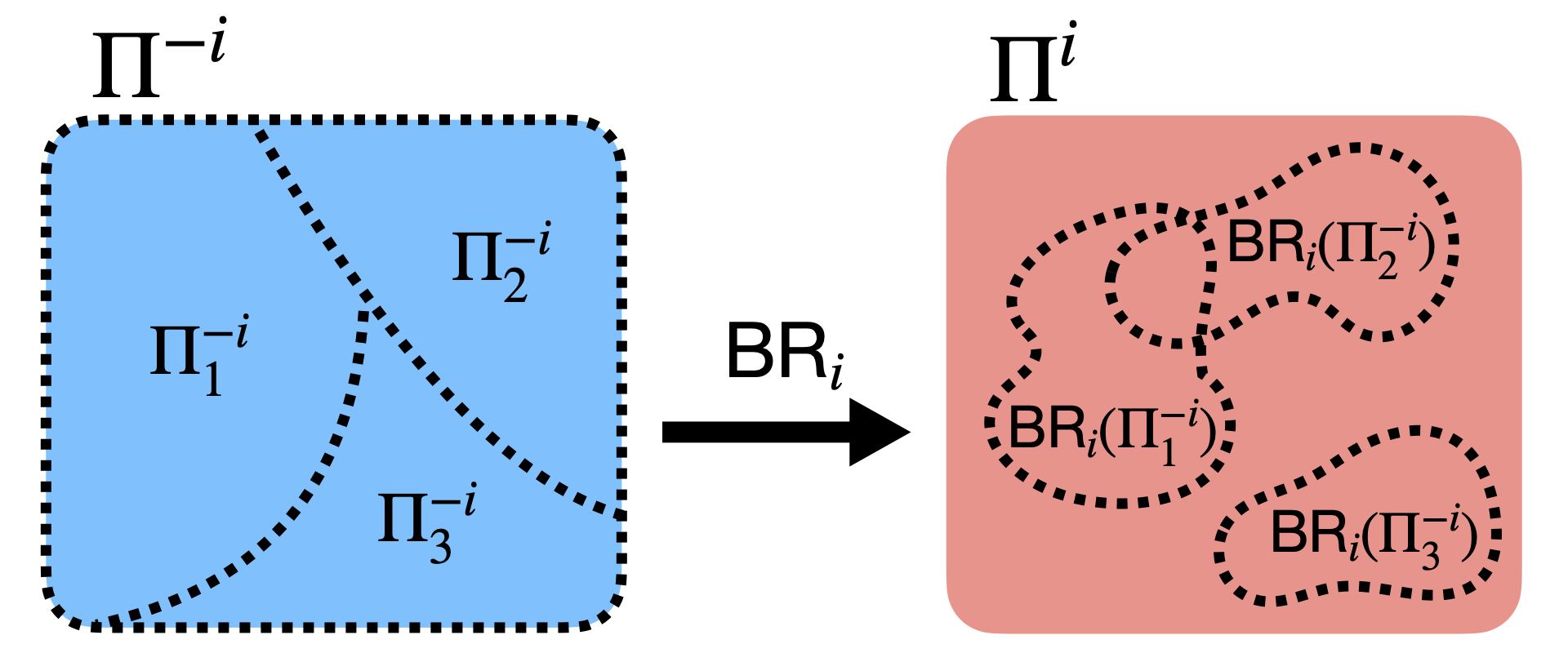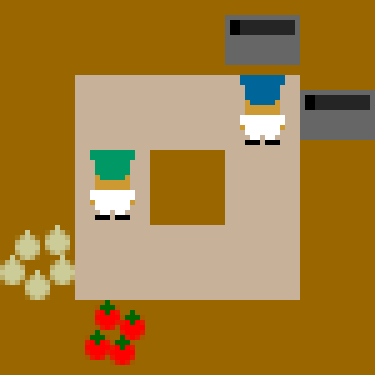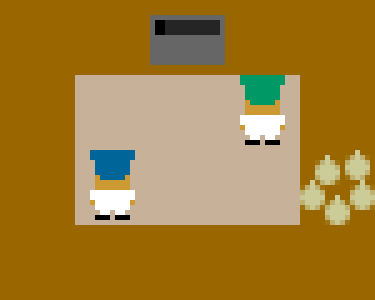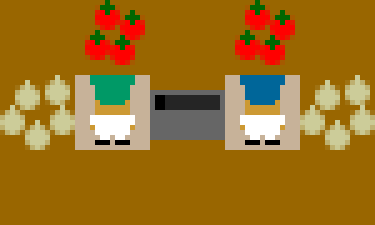Successful coordination in multiagent settings often requires knowing relevant details about your partners’ strategies. Safely driving on the road requires knowing that other drivers will driving on the right side of the road, stop on red and go on green, and alternate at stop signs. However, there are often many more irrelevant details that you don’t need to know: other drivers’ low-level motor controls, what their destinations are, or what type of music they like to listen to.
In this research project, we explore and formalize the idea that in multiagent settings there are strategically relevant and strategically irrelevant pieces of knowledge about other player’s strategies, but only the relevant aspects are necessary for optimal coordination.

We introduce the idea of a strategic equivalence relation (SER): strategies (on the left) are equivalent if they induce the same best response (on the right) from the other player. SERs naturally partition the strategy space (left) into different conventions for solving the game. Below you can find links to visualizations of the SERs for the strategies in various Overcooked environments.
Schelling Point
The cooks need to coordinate on who gets to occupy the useful central tile to deposit two onions within the time limit.
Coordination Ring
The cooks need to deposite an onion and a tomato into the same pot. The cooks cannot occupy the same spot, requiring them to coordinate on how they pass around the central island.
Cramped Room
The cooks need to coordinate on low-level movements to avoid getting in each other’s way in order to get two onions into the pot within the time limit.
Locked In
Cooks need to coordinate on the timing of a recipe involving onions and tomatoes using a single pot. Includes a fully- and partially-observed version.



